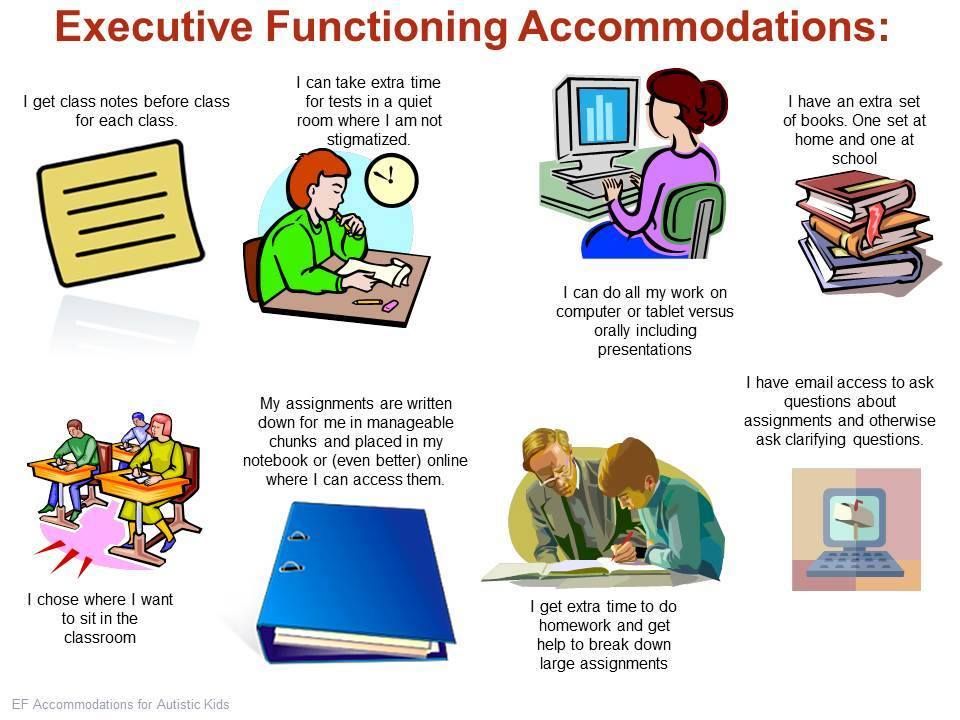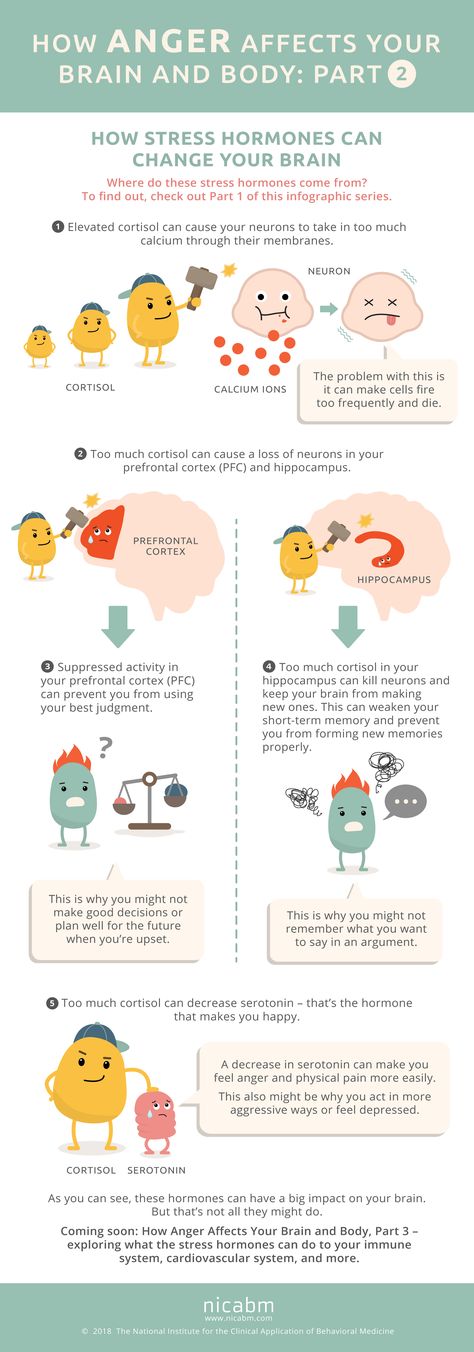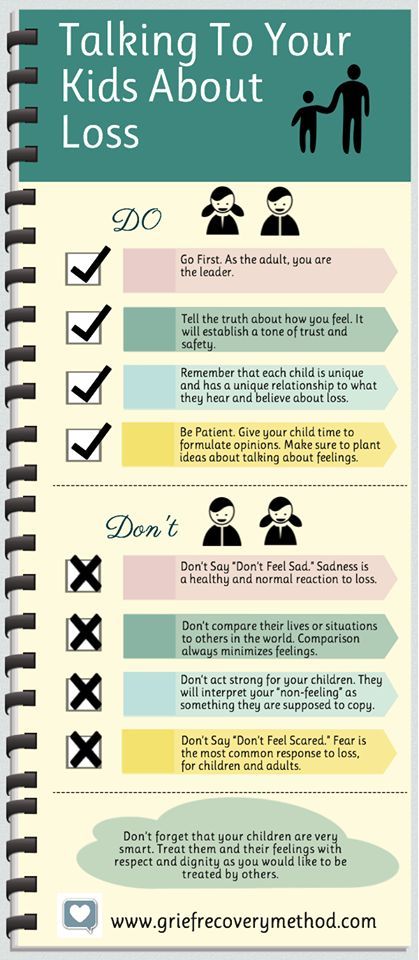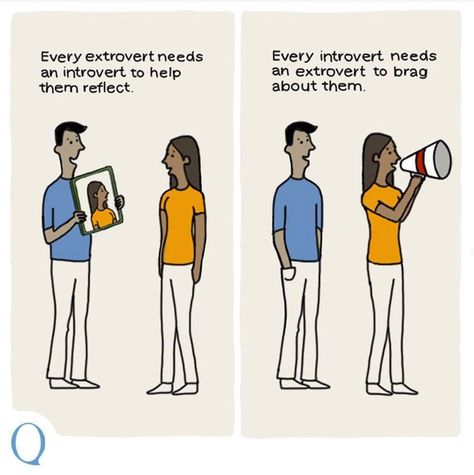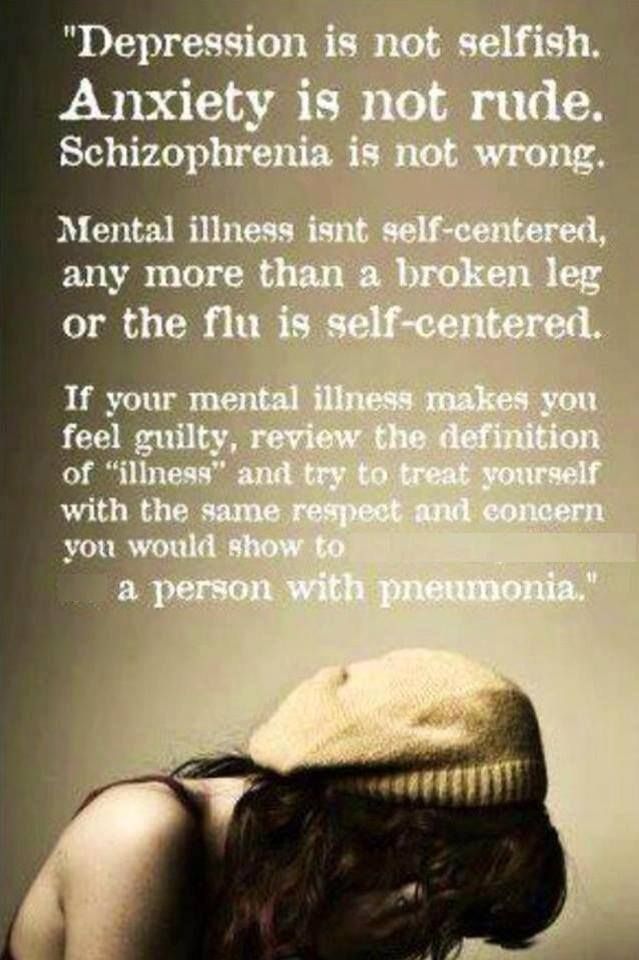Marital affairs and depression
Of Troubled Marriages, Sexual Compulsions and Depression
News headlines are packed with information about the life and loves of athletic hero, Tiger Woods. Many other celebrities and national leaders have been caught in extra marital affairs. Men such as former President Bill Clinton, former Governor of New York Eliot Spitzer, present day Governor Mark Sanford of South Carolina, and many others, have been forced by the media to confess to their extra marital sexual escapades.
Regardless of political views,most people start out admiring these people who are viewed as successful, with wealth, power, happy marriages, and healthy and well adjusted children.
That is why people are perplexed by the basic question that these lurid affairs raise: Why?
At first glance, it is easy to demonize these people for having committed such offenses against their wives and children. They become further examples of the stereotypical view that men simply cannot keep their pants on and their "zippers zipped. "
However, this immediate reaction is neither fair nor accurate. First of all, men are not the only people who have problems with extra marital sex. Wives can be guilty of this as well and studies show that women are quite capable of engaging in multiple sexual liaisons while married. Therefore, rather than blame one gender or the other, it is more important to explore what might really be happening to cause these painful problems.
Possible Explanations for Multiple Sexual Affairs:
It might come as a surprise to the reader that many of the types of people who seemed to go from one person to the next in the pursuit of sexual pleasure are really depressed.
Before any of you protest against this hypothesis by stating something like, "Oh sure, Dr. Schwartz, Bill Clinton was really depressed! Are you kidding?" No, I'm not kidding.
Depression can express itself in many ways. Low self esteem along with fears of rejection, often do form the basis of why some people cannot seem to be involved in truly intimate relationships.
It is true that many depressed people can be shy, passive and unassertive. This is the type of individual whom many will refer to as a "nice person who never hurt anyone." This is also the type of individual who could, and often does, pursue prostitutes and pornography even if they are married. In other words, the individual lives with the chronic fear that they are inadequate. In the search for reassurance as to their masculinity, they go from one sexual partner to the next. At home, their wives and children fail to be the source of self confidence and self esteem.
Paradoxically, the another type of depressed person is the one who is aggressive and gregarious. They compensate for their fears and self doubts by pursuing power, wealth and sexual conquests. This is why it is within the realm of possibility that a man like Bill Clinton, and the others, can be depressed.
Here is Tiger Woods, the source of admiration and envy for millions of people. Yet, his sexual activities captured the headlines because they are so much in opposition to what everyone expected of their golf hero. However, it is true that even a man like Tiger Woods can live with depression, low self esteem, deep self doubt about masculinity and have a constant need for reassurance.
However, it is true that even a man like Tiger Woods can live with depression, low self esteem, deep self doubt about masculinity and have a constant need for reassurance.
I can anticipate some of my readers scoffing about this by saying such things as, "Oh come on Doc, what about the hurt he caused to his family. Besides, didn't he know the hurt he would cause? Isn't it the same with Bill Clinton and the others?"
The answer to that protest is, no, they did not know they could cause such hurt.
The people who are sexually compulsive, such as the ones who are being discussed here, are guided by such powerful forces that very little thought is given to consequences and if those thoughts do occur, they are quickly dismissed.
It must be emphasized that only some of these men are sexually compulsive or "addicted." The others avoid sex and tend to go to prostitutes because they are timid around women and out of feelings of guilt.
Whether avoidant of sex or sexually acting out, both types of men feel guilty about their sexual feelings and that is why they avoid intimacy at home. Over the years, I have spoken to many wives who expressed deep frustration with their men for not having sex with them. When they arrive in the consulting room, many of these men admit that it is easier for them to have sex with anonymous women than with their wives.
Over the years, I have spoken to many wives who expressed deep frustration with their men for not having sex with them. When they arrive in the consulting room, many of these men admit that it is easier for them to have sex with anonymous women than with their wives.
In some ways, this goes back to what is called the "Madonna-Whore Complex." These are people who think of their wives as mothers to their children and are, therefore, pure, just like the "Madonna." To admit to having sexual strivings toward them and to even understand that their wives could have sexual strivings, is too much for them. As a result, they reserve the major part of their sexual lives for pornography or for prostitutes.
Extra marital affairs can occur for other reasons than depression or compulsive sexuality. If one or both of the people in the marriage is unhappy and is not expressing it, there is fertile ground for an affair. One reason for an unhappy marriage sometimes has to do with the fact that partners have very different libidinal drives. If one of the dyad likes frequent sex and the other does not, trouble can quickly set in. By the way, it is not only the husband who can have this complaint. Over the years of my practice, plenty of wives come to the consulting room with the complaint that their husbands never want sex.
If one of the dyad likes frequent sex and the other does not, trouble can quickly set in. By the way, it is not only the husband who can have this complaint. Over the years of my practice, plenty of wives come to the consulting room with the complaint that their husbands never want sex.
Regardless of the factors that caused an extra marital affair, the consequences are always devastating. Volcanic eruptions of feelings of hurt, betrayal, disbelief, fear, outrage and rage all come flooding in. Deep distrust and resentment also set in. Children are caught in the middle of the maelstrom resulting from the deadly secret being divulged. No one is spared, including the one who is blamed.
Can marriages survive an affair?
Statistics show that a large percentage of marriages disrupted by an affair end in divorce. However, there are marriages that are able to continue and even improve after the crisis passes. A lot depends upon who had the affair and for what reasons.
It is said that it is easier for a marriage to survive if the sexual tryst was with an anonymous person and no relationship was formed. Another way of saying this is that if the affair did not involve a romance but was in the nature of a "one night stand," it is much easier for the partner to be forgiving. If there was a romance, one or both partners may prefer divorce.
Another way of saying this is that if the affair did not involve a romance but was in the nature of a "one night stand," it is much easier for the partner to be forgiving. If there was a romance, one or both partners may prefer divorce.
Another important factor is the extent to which a couple wants to repair the marriage and is willing to go for help. Help may come in the form of individual psychotherapy as well as marriage counseling.
For psychotherapy and marriage counseling to succeed, everyone needs to have a lot of time to work on and resolve feelings of anger, guilt and betrayal. There is no short term solution to this.
Perhaps the deepest issue the couple will have to face, if they want the marriage to succeed, is to work on the problem of trust. A sexual affair outside of the bounds of marriage always creates feelings of betrayal and distrust. This, along with anger, takes a long time to resolve. The deep wounds of hurt do not just disappear.
There is also a need for the couple to explore what went wrong in the marriage that might have caused the affair. It is often said that an extramarital affair can be a cry for help.
It is often said that an extramarital affair can be a cry for help.
I always point out, when working with intimate couples, that problems in the relationship are never the fault of one person. Even in the face of an affair, it is a mistake to demonize that person and to place all the blame on him or her. By and large, people in a relationship mutually make their own contributions to the problems that are disruptive.
Iraq and Afghanistan:
Some have said that the discussions about Tiger Woods are a waste of time because of deeper and more troubling issues such as unemployment and war.
However, the deep crisis created by both wars and the economy are having devastating effects on many marriages. Veterans, both female and male, are coming home to marriages that are in a state of ruin because the husband or wife has moved on to another partner and now wants a divorce. With regard to the economy and such problems as unemployment, I do not know if there are any statistics on the rate of divorce or affairs but my guess is that the economy is not helping, to say the least.
What are your comments about this painful and difficult topic? I am not referring to Tiger Woods or other celebrities but to your own personal experiences with discord in marriage caused by sexual acting out. Your comments, questions and experiences are encouraged.
Allan N. Schwartz, PhD
Cheaters beware: 4 mental health effects of extramarital affairs
| Listen to this article |
Extramarital affairs are talked about only in hushed tones in our society. Adultery, obviously, is frowned upon. Not many, however, realize that it won’t just have an effect on social reputation but will also impact one mentally and physically. Truth be told, an extramarital affairs can be taxing.
There can be numerous reasons as to why a person would end up cheating on their spouse. According to Dr Rahul Khemani, a renowned psychiatrist at Wockhardt Hospital, Mumbai, adultery has existed since marriage has existed. In addition, he says we need to be aware of the fact that infidelity is not always a symptom of a bad marriage. One cannot necessarily correlate it with marital dysfunction.
In addition, he says we need to be aware of the fact that infidelity is not always a symptom of a bad marriage. One cannot necessarily correlate it with marital dysfunction.
Sometimes, it is insecure attachment, conflict avoidance, prolonged lack of sex, loneliness, and years of monotony and repetitive arguments that can lead to adultery. There are, of course, those who cheat because they can. Affairs can also take the form of self-discovery, ‘could have been’ scenarios, and the search for a new identity facilitated by a lover.
“Extramarital affairs are burdened with secrecy, clandestine elements, and the fear of being discovered. Paradoxically, these factors actually fuel the affairs and make it difficult to get out. As the affair continues for a long time, the person is left to grapple with the consequences of what happens next and whether to come clean or not,” said Dr Khemani
Here’s how this added emotional burden can wreck your emotional and mental health1.
 The guilt factor
The guilt factorOne might be happy with their lover but the guilt of hurting their spouse is troubling. This guilt makes them emotionally weaker, bringing a drop in their confidence level and self-esteem. This only causes more stress and mental upheaval.
Sorry but an extramarital affair can send you on a guilt trip. Image courtesy: Shutterstock2. The fear of being caught
Fear is never good for your mental health. The fear of getting caught starts feeding on the person engaged in an extramarital affair. They keep thinking about what will happen if they’re caught, how it will affect their family and what society will think of them. This brings mental and emotional instability which makes them all the more vulnerable to anxiety and depression.
3. The mental exhaustion
The constant feeling of guilt combined with fear can leave one extremely exhausted. Moreover, undue expectations from a lover can make the case even worse. All these factors combined create stress and mental pressure, adding to the feeling of emotional exhaustion. Plus, being romantically connected with two people at the same time can actually be quite daunting.
Plus, being romantically connected with two people at the same time can actually be quite daunting.
4. Damaged self-esteem
Overthinking about the repercussions of an extramarital affair can be extremely damaging to one’s mental health. One might end up seeing themselves as a culprit and take the blame for everything going wrong. This thought process causes a blow to self-esteem.
Stress and depression are also side-effects of having an extramarital affair. Image courtesy: Shutterstock“Extramarital affairs often lead to feelings of guilt, shame and utter horror. Leading parallel lives involves tremendous logistical decisions to be made and can lead to fatigue, exhaustion and burnout. The fear of putting one’s marriage on the line, leading to emotional hurt for the spouse and children can cause extreme distress,” concluded Dr Khemani.
There are, however, people who find the idea of adultery exciting and adventurous. Basically, they view it either as a coping mechanism, or as a break from their monotonous routine. Needless to say, the emotional burden often weighs too heavy and can affect anyone’s mental health, no matter what their justification for an extramarital affair is.
Needless to say, the emotional burden often weighs too heavy and can affect anyone’s mental health, no matter what their justification for an extramarital affair is.
It isn’t a wise idea to put your marriage and mental health in jeopardy for a few moments of excitement.
Depression in the family: rules of survival //Psychological newspaper
The girls were laughing at lunchtime. They excitedly, rejoicing, interrupting each other, shared their Sunday adventures, discussing who was where and what he saw. And suddenly, faced with this light girlish laughter, Yulia realized that she was very tired. So tired, as if she had been diagnosed with depression, and not her husband. For half a year now she has been living in a different reality from which joy, pleasure, and energy have gone. From which life itself seemed to have gone.
Depression entered their family unnoticed. An experienced predator quietly crept in and took her husband prisoner, changing his behavior, mood, thoughts. Julia could not name the exact date when she suddenly saw a completely different person next to her. Sad. Tired. Desperate. And this smoothness of the process made it impossible to recognize what a serious opponent was to be fought. The husband did not look sick. There were no terrible events in his life. So, a couple of minor annoyances. Well, an emergency at work, to which he is so accustomed that it seems that he was born and raised in it. And then there's the insomnia. Lies all weekend. Constantly chewing on something. Maybe just tired?
Julia could not name the exact date when she suddenly saw a completely different person next to her. Sad. Tired. Desperate. And this smoothness of the process made it impossible to recognize what a serious opponent was to be fought. The husband did not look sick. There were no terrible events in his life. So, a couple of minor annoyances. Well, an emergency at work, to which he is so accustomed that it seems that he was born and raised in it. And then there's the insomnia. Lies all weekend. Constantly chewing on something. Maybe just tired?
Yulia was not used to giving up and tried her best to stir him up. But any of her proposals responded in him with irritation. She did not know how to interest him, to please him. He did not like much of what she said, cooked, did. She stopped understanding him. Yes, and he himself plainly could not explain anything to her. She felt embarrassed for her own joy and pleasure that life gave her. It became ashamed to go to sports, meet friends. She felt guilty for not being able to help. Being around someone with depression is hard. You have to face and endure not only him, but also your own feelings of sadness, sadness, despair, powerlessness. And it's not easy.
Being around someone with depression is hard. You have to face and endure not only him, but also your own feelings of sadness, sadness, despair, powerlessness. And it's not easy.
How can I help?
Rule 1. Take care of yourself
This is the most important rule when your loved one is depressed.
The first impulse is always to show maximum concern for the other. But in this situation, you become a resource for your loved one when the “airplane rule” comes, and your good mood is an opportunity to attach your loved one to the good, to help him get out of depression.
It is important to take care of your nutrition, sleep, rest and pleasures with great trepidation. Talk openly about your successes and achievements at work, about your news. Talk about how you went to a club or an exhibition with friends, how you walked in the park, roller-skated, ate ice cream, even when there is a desire to hide your pleasure, and this desire will certainly appear.
With all this, you will leave the opportunity for your loved one to rejoice for you, to relieve yourself of the guilt for being a burden on the family. Your happiness, communication, success - will remind your loved one that there is good in life, which you can turn to at any moment.
You do not have the right to sacrifice your dreams for the depression of a loved one.
Yes, not everything will work out for you. Sometimes you will feel like you are not doing well. Maybe you will cry. You will be angry and offended. It is important to find several suitable ways for you to relieve stress and tension: whether it be running, walking the dog, yoga, or something else. Get your own support. It may be worth considering visiting a psychologist during this period.
Rule 2: Taking it seriously
Depression is not just a bad mood of a person when he lies and does not want to do anything. Depression is a disease that should be taken seriously.
Therefore, do not accuse your loved one of laziness - now he is sick, and he really has no strength. Do not reproach him for "whining" - now he is sick and cannot rejoice. Do not call him a loser and a fool - now he is sick, and his thought processes are inhibited.
Yes, you cannot take your loved one to a doctor or psychologist, but you can offer them this opportunity. Try to convey to your loved ones that depression is nothing to be ashamed of and that it can happen to anyone.
Rule 3. We monitor nutrition
In depression, eating habits are often disturbed. Or a person eats very little, as he ceases to experience the pleasure of eating. Or another pole arises - and a person begins to eat everything, giving preference to fatty and sweet.
You can take care of your loved one by organizing a daily healthy and correct diet with enough proteins, fats and complex carbohydrates for him, yes, and for yourself. It is important not to forget about the variety of cereals, meat, fish, trying to supplement dishes with vegetables. It is good to always have a supply of fruits to offer instead of sweets and cakes. Minimize caffeine and avoid alcohol as much as possible.
It is good to always have a supply of fruits to offer instead of sweets and cakes. Minimize caffeine and avoid alcohol as much as possible.
Yes, you cannot force your loved one to eat, but you can always cook food for him, set the table and offer to eat with you.
Rule 4. Restoring sleep
Here it is the same as with food: either a person cannot fall asleep for a long time, he has early awakenings, that is, he sleeps little. Or he sleeps 10-12 hours a day and is ready to lie in bed further.
On the other hand, an hour before bedtime, you can fill a bath with relaxing aromatic oils for a loved one, which is better to alternate with a relaxing massage every other day. Offer warm herbal tea at night. If desired, turn on pleasant calm music. Do not disturb a loved one when he has already gone to bed. Move all serious conversations to the next day.
Yes, you can't force your loved one to sleep, but at the same time, you can create a relaxing environment for them to fall asleep faster.
Rule 5. Doing Together
When depressed, a person becomes passive, and therefore it is very important to help maintain the activity that he still retains, trying to expand it a little bit.
Unobtrusively offer your loved one various joint activities that do not require significant physical, emotional or mental effort from him. Focusing on the situation, you can think about a joint walk in the park; helping you with dinner when you are preparing a new dish, and he, for example, cuts vegetables; it could be watching a movie, or helping them clean the apartment together…
Try not to make this activity a chore and a boring routine. And one more thing: it is important that a loved one experiences the fact that he brings real benefit and help, so do not forget to thank him.
Yes, you cannot force your partner to work with you, and at the same time, you can each time offer to share this or that easy and pleasant activity with you, to join you.
Rule 6. Plan for fun
In depression, a person loses the ability to experience pleasure in life, so it is important to take care of what brought joy before.
The simplest things can help here: bowling or billiards, a trip to the nearest suburbs to go fishing with you or with friends; a trip to the water park, to the sauna. Briefly visit relatives and friends who live in other cities.
You can seriously consider getting a puppy at home - one that will need to be taken care of, that will have to play with, and that will require daily walks.
If a loved one does not mind, then you can invite friends home and arrange an evening of memories, or watch a movie together, or some kind of match, ordering pizza for everyone, for example. Here it is better to build on the former hobbies of a loved one.
Yes, not all of your suggestions will be accepted and approved, but it is important to leave a loved one the opportunity to participate in all these pleasures.
Rule 7. Be patient
A depressed person can experience a variety of and sometimes very conflicting feelings. His mood can quickly change from pity and tears to anger, from humiliation and guilt to accusations.
Be prepared to be angry and yelled at. Try not to react at these moments, calmly leave the room so as not to escalate the conflict that arises.
Be prepared for tears and sobs. Try to find words of comfort.
Remember that if in your presence a depressed person shows feelings, even the most negative ones, then, oddly enough, this is a very good sign. This means that you are not repelled, considered the closest and trusted so much that they share all their experiences.
Yes, you will not be able to completely console your loved one, and at the same time you can accept his experiences and be present in them.
Rule 8: Reduce Requirements
I know that you hope that if you strictly follow all these rules, and support your loved one with all your heart, with all your might, then one fine morning he will laugh and say to you: “Yes! How wonderful life is! I'm perfectly healthy!"
Unfortunately, this may not happen, or it may not happen as quickly as you would like. And it is precisely this unjustified expectation that can serve as a cause for despair and a sense of powerlessness. Sometimes the cutest cat pictures and hilarious comedy won't evoke any emotion in a person, and you can't handle it at that moment.
And it is precisely this unjustified expectation that can serve as a cause for despair and a sense of powerlessness. Sometimes the cutest cat pictures and hilarious comedy won't evoke any emotion in a person, and you can't handle it at that moment.
It is important to be able to accept your own limitations. Not everything is under your control.
Learn to see the smallest successes and changes in the mood and behavior of a loved one: his fleeting smile, his desire to walk with you, participate in something, go somewhere. Believe me, it's already a lot. Remind him that his condition is temporary, that you are there. And just be there.
It's hard when your loved one is depressed. This is such a disease that undermines the strength of everyone who is in it and nearby, so you should be careful and careful with this dangerous enemy. Interested, read about this disease more. Ask for help. And take care of yourself .
* The client has consented to the publication of this article. Confidentiality is respected.
Confidentiality is respected.
Source
Family systems theory and depression. Murray Bowen's Family Systems Theory. Basic concepts, methods and clinical practice
Family systems theory and depression
Bowen built his theory of family systems on the basis of concepts that bring together a large group of phenomena related to emotional functioning. In our assessment of depression, we will rely on these key concepts, but we will try to clarify and concretize them for our purposes.
Generation gap
Psychological theory and practice have long recognized the link between depression and loss. Family systems theory proposes to consider the concept of loss more broadly, including both functional and physical losses, as well as their consequences for several generations. From this point of view, loss is not only a trigger that triggers acute depression, but also an event that permanently reduces a person's tolerance for depression. The approach from the point of view of the theory of family systems suggests that during real losses and other life breakdowns, people stop altogether or reduce their contact with relatives to a minimum. One of the consequences of this approach is that the characteristics of the experience of loss are closely dependent on the reaction of the family as a whole to the loss and to each other. The ability to stay connected with the family at the most important moments of life, and not to break off relations with it, is the most significant factor in determining the quality of the future life.
The approach from the point of view of the theory of family systems suggests that during real losses and other life breakdowns, people stop altogether or reduce their contact with relatives to a minimum. One of the consequences of this approach is that the characteristics of the experience of loss are closely dependent on the reaction of the family as a whole to the loss and to each other. The ability to stay connected with the family at the most important moments of life, and not to break off relations with it, is the most significant factor in determining the quality of the future life.
Where does this desire to break with relatives come from and what does it lead to? Both can be seen as a manifestation of family fusion, a level of family tension, or constant anxiety. Thus, the gap is a consequence of anxiety, and at the same time maintains this anxiety at the same level. The gap blocks the possibility of easing or removing family tension through an active and flexible process of interaction within the family. All this contributes to the consolidation of depression in different family members, regardless of whether it exists in a latent or active form.
All this contributes to the consolidation of depression in different family members, regardless of whether it exists in a latent or active form.
Switching from loss or trauma to a larger family response opens up exciting possibilities. While death is irreversible, rupture is to some extent reversible. Indeed, clinical experience confirms the theoretical proposition that depression and the tendency to depression can be significantly reduced as a result of awareness and elimination of a long-term gap between several generations in the family.
Case 1
Mrs A asked for help for her 12-year-old son, whose problems she attributed to difficulties in her marital relationship. The husband had several extramarital affairs, and, in the end, he went to live with another woman. During the sessions, Mrs. A. was in a state of severe depression: she looked emaciated, complained of disturbances in appetite and sleep, and was painfully slow in speech and movement. Her family diagram is shown in Figure 1.
Fig. 1. Family Diagram A.
Ms. A. was put on antidepressant medication and recommended for psychotherapy. During the course of treatment, the troubles associated with her son's behavior quickly disappeared. However, Mrs. A's depression continued. Mrs A was attached to her children; in addition, she was used to relying on her husband and on his family of origin. Her parental family lives in England. She met her husband in England, where he worked, and came with him to the United States. Ms A. was the adopted daughter of a family with four children of her own. She always felt like a secondary person in this family and often started bickering in order to communicate with family members as little as possible. Treatment began with a discussion of this aspect of her life.
Ms. A began to connect with her mother, siblings and old friends in England. For the most part, her efforts resonated. She has planned a trip to England for Christmas. Her husband threatened her to cancel the trip, perhaps fearing she would not return. Despite this, as well as last-minute difficulties with tickets, the trip went through. Ms. A re-established her relationship with her family and returned home in time for the start of the school year. Ms. A's attention to her family led to a return visit from her sister and cousin. Mrs A began to consider a long-term plan - to return to live in England when the children finished their studies. As Mrs. A began to feel some spiritual confidence, her husband began to take an interest in her. When it became clear that her husband was not leaving his girlfriend, she ended her close relationship with him, but continued to communicate regularly about raising children and caring for them. In order to have funds for future trips to England, she began to prepare for a job. Despite doubts about her ability to learn anything, she successfully completed vocational training courses and was very pleased when she quickly found a job and realized that she was appreciated. Ms. A gradually stopped taking her medication and soon completed her psychotherapy.
Despite this, as well as last-minute difficulties with tickets, the trip went through. Ms. A re-established her relationship with her family and returned home in time for the start of the school year. Ms. A's attention to her family led to a return visit from her sister and cousin. Mrs A began to consider a long-term plan - to return to live in England when the children finished their studies. As Mrs. A began to feel some spiritual confidence, her husband began to take an interest in her. When it became clear that her husband was not leaving his girlfriend, she ended her close relationship with him, but continued to communicate regularly about raising children and caring for them. In order to have funds for future trips to England, she began to prepare for a job. Despite doubts about her ability to learn anything, she successfully completed vocational training courses and was very pleased when she quickly found a job and realized that she was appreciated. Ms. A gradually stopped taking her medication and soon completed her psychotherapy. Her condition slowly improved, although there were breakdowns. In addition, she continued to have physical symptoms. Nevertheless, she achieved a significant strengthening of her ego, which was largely due to the successful overcoming of the gap with her parental family.
Her condition slowly improved, although there were breakdowns. In addition, she continued to have physical symptoms. Nevertheless, she achieved a significant strengthening of her ego, which was largely due to the successful overcoming of the gap with her parental family.
Case 2
Mr. B asked for help when he realized he had an urge to drive off a bridge in a speeding car. He was a middle manager and was on temporary leave after a series of conflicts with his superiors. To resolve this situation, he filed a complaint, the consideration of which was delayed. Mr. B. himself and his family experienced financial difficulties because of this, and his self-confidence and sense of self-worth were seriously shaken. Mr. B. grew up in a poor and somewhat disorderly city family. He was proud of his achievements, and when troubles suddenly fell on him, he fell into despair. Perhaps this was facilitated by the news received a year earlier that his wife would probably not be able to bear a child from him. Although she had given birth to a daughter by another man when she was young, after several unsuccessful pregnancies, doctors doubted whether she would be able to give birth again. The scheme of the B. family is shown in Figure 2.
Although she had given birth to a daughter by another man when she was young, after several unsuccessful pregnancies, doctors doubted whether she would be able to give birth again. The scheme of the B. family is shown in Figure 2.
Fig. 2. B's family diagram.
From the very beginning, treatment focused on establishing a dialogue between Mr B and his wife. One of the first results was that she decided to go to work, which partly reduced the stress due to lack of money. In addition, Mr. B. was distracted and comforted by talking to his wife. However, it was found that he reacts emotionally to the sudden change of roles in the family, to the advice of his wife, and also to the fact that she does not tolerate him enough when he is angry or upset. I asked about his family of origin, with whom he had little contact for several years. The final break with the parental family came at the moment when he told the authorities that the mother did not care about the younger children. He said that he had a reputation in the family as a reliable person. I supported his decision to meet with two or three members of his extended family, but advised him to avoid excessive emotional displays. A few weeks after the resumption of relations, he received a number of invitations from relatives. Visits followed, during which, as he said, he was deceived, exploited and generally used in every possible way. These contacts required him to make an effort, but it was noticeable that he became more energetic. The asthma symptoms that accompanied his depression disappeared. He decided that he would stay away from the internal affairs of the family, but remain open to communication with those of its members who want to build normal relations with him. Mr B no longer looked depressed. He began to vigorously prepare for the process devoted to the analysis of the labor conflict, and for possible unexpected turns in the case. I told him that if he ever wants to strengthen his strength and change his life, contact with his family of origin can help him with this.
He said that he had a reputation in the family as a reliable person. I supported his decision to meet with two or three members of his extended family, but advised him to avoid excessive emotional displays. A few weeks after the resumption of relations, he received a number of invitations from relatives. Visits followed, during which, as he said, he was deceived, exploited and generally used in every possible way. These contacts required him to make an effort, but it was noticeable that he became more energetic. The asthma symptoms that accompanied his depression disappeared. He decided that he would stay away from the internal affairs of the family, but remain open to communication with those of its members who want to build normal relations with him. Mr B no longer looked depressed. He began to vigorously prepare for the process devoted to the analysis of the labor conflict, and for possible unexpected turns in the case. I told him that if he ever wants to strengthen his strength and change his life, contact with his family of origin can help him with this.
Intergenerational projection
Merging or sustained tension in one generation is transferred, with some variations, to the children of the next generation. Some of them absorb more tension than others, but the tendency in any family is that one generation passes on to the next about the same degree of chronic anxiety with which it lives. The higher the level of chronic anxiety in the family, the greater the family's vulnerability to dysfunction. Depression and other forms of emotional disturbance are expressions of the intergenerational transmission of this vulnerability. Other manifestations of such transmission fall into the categories of social and physical dysfunction. There is a tendency for both the form and degree of family vulnerability to be transmitted from generation to generation. For example, one family may be dominated by social problems such as juvenile delinquency or physical abuse, while another family may be dominated by physical problems. Vulnerability to depression is rooted in the history of many generations of the same family, which leads to the emergence of emotional symptoms, reinforced by physical and emotional breaks.
Vulnerability to depression is rooted in the history of many generations of the same family, which leads to the emergence of emotional symptoms, reinforced by physical and emotional breaks.
Clinical episodes will be described below, illustrating the transmission of family tension through several generations, culminating in the clinical depression of the family member on whom family anxiety of several generations is projected.
Case 3
Joey W., 9 year old boy. The family also has a younger daughter. Their mother, a school teacher, independently solved all family issues. She sought help for Joey's depressive symptoms after several deaths occurred in the families of their neighbors. Joey seemed anxious and depressed; his school grades have noticeably deteriorated; he asked many questions about death. The family diagram is shown in Figure 3.
Fig. 3. Family diagram B.
When assessing the family, it turned out that the mother was raised by foster parents. Although her relationship with them was relatively harmonious, as she grew older, she moved to live away from them and met with them quite rarely. The degree of separation was high, but unintentional, so I immediately suggested that she resume personal contact with her foster parents. Within a few weeks, the child's symptoms disappeared. His energy returned, his grades improved, he restored relationships with peers. When another person died at their neighbors' house, Joey and his family discussed the event openly; he went with his parents to the funeral. Apparently, the child's recovery from depression and the family's more open attitude towards death were, at least in part, the result of the restoration of contact between the mother and the family in which she was brought up. The vulnerability of a mother's separation from her family was passed on to her son. The process of intergenerational transmission became the source of his depression. Thankfully, the son's depression eased as the mother re-established relationships with older members of her extended family.
Although her relationship with them was relatively harmonious, as she grew older, she moved to live away from them and met with them quite rarely. The degree of separation was high, but unintentional, so I immediately suggested that she resume personal contact with her foster parents. Within a few weeks, the child's symptoms disappeared. His energy returned, his grades improved, he restored relationships with peers. When another person died at their neighbors' house, Joey and his family discussed the event openly; he went with his parents to the funeral. Apparently, the child's recovery from depression and the family's more open attitude towards death were, at least in part, the result of the restoration of contact between the mother and the family in which she was brought up. The vulnerability of a mother's separation from her family was passed on to her son. The process of intergenerational transmission became the source of his depression. Thankfully, the son's depression eased as the mother re-established relationships with older members of her extended family.
Case 4
Nancy G., a seventeen-year-old girl, has suffered from bouts of depression for the past four years (several times a year). During one of the exacerbations there was a suicide attempt; Nancy reported that during such periods she felt completely depressed. Another obvious sign of malaise was a progressive inability to study or work. When I started working with her, she dropped out of school for the second time. The family diagram of Nancy G. is shown in Figure 4.
Fig. 4. Family Diagram D.
The most likely causes of Nancy's symptoms were multiple sexual assaults by a male babysitter when she was 8 years old, and she was raped by a peer at a party when she was 15 years old. A detailed analysis showed that the root cause of Nancy's depression can be considered the depression of her mother. The depression reached its peak when Nancy was between three and six years old, during which time her parents' marriage was falling apart. In addition, the girl's contact with her father was cut off because he was taking drugs. Nancy's loss of her father mirrored the situation of her mother, whose father died when she was still young. Thus, the situation of early loss of a father, as well as a close relationship with a depressed mother, manifested itself in at least three generations. When the transmission of anxiety, accumulated over several generations, is directed to a break, then one of the possible consequences of this process may be a tendency to depression. In this case, the treatment was mainly aimed at finding out how the mother could convey her anxiety and self-doubt to her daughter. After that, Mrs. G. became depressed again, but she was able to calm down and separate her depression from her daughter's. An extension of this case will be described in the next section.
In addition, the girl's contact with her father was cut off because he was taking drugs. Nancy's loss of her father mirrored the situation of her mother, whose father died when she was still young. Thus, the situation of early loss of a father, as well as a close relationship with a depressed mother, manifested itself in at least three generations. When the transmission of anxiety, accumulated over several generations, is directed to a break, then one of the possible consequences of this process may be a tendency to depression. In this case, the treatment was mainly aimed at finding out how the mother could convey her anxiety and self-doubt to her daughter. After that, Mrs. G. became depressed again, but she was able to calm down and separate her depression from her daughter's. An extension of this case will be described in the next section.
Processes in the nuclear family
If depression is initiated by an intergenerational gap and the projection of chronic anxiety through generations, then it is the processes in the nuclear family that determine who exactly will suffer from depression and how it will be maintained. In such a family, the symptomatology most often manifests itself in that family member who is more prone to loss of self within the family system of relations. In such a family, one or more people tend to abandon their self more than others, and therefore become candidates for the role of successors to family anxiety. In a family vulnerable to emotional dysfunction, all this can form depression of varying degrees of intensity. The loss of self can manifest as either over-functioning for others, decreased functioning for oneself, or a combination of both of these forms of functioning. In all cases, this will be the loss of one's Self, or the depreciation of oneself.
In such a family, the symptomatology most often manifests itself in that family member who is more prone to loss of self within the family system of relations. In such a family, one or more people tend to abandon their self more than others, and therefore become candidates for the role of successors to family anxiety. In a family vulnerable to emotional dysfunction, all this can form depression of varying degrees of intensity. The loss of self can manifest as either over-functioning for others, decreased functioning for oneself, or a combination of both of these forms of functioning. In all cases, this will be the loss of one's Self, or the depreciation of oneself.
Self corresponds to the functional level of a person, which implies the ability to maintain one's individuality and at the same time be in an effective interdependence relationship. The processes in the nuclear family operate both towards and against the manifestation of one's self. Anxiety weakens the self, especially when it manifests itself repeatedly and lasts long enough. On the contrary, relative freedom from chronic anxiety allows the ego to "bloom". I exist both as a monolithic core and as something changeable, responding to changing conditions of the surrounding world. The nuclear family governs the distribution of external and internal stress among family members. Such is the central process of development and suppression of the ego in individual family members.
On the contrary, relative freedom from chronic anxiety allows the ego to "bloom". I exist both as a monolithic core and as something changeable, responding to changing conditions of the surrounding world. The nuclear family governs the distribution of external and internal stress among family members. Such is the central process of development and suppression of the ego in individual family members.
Some members of the family tend to give up their ego, while others strive to strengthen and “accumulate” it. The "accumulation" of the self within the family can occur through the expansion of role functions, privileges or degrees of freedom. In some families, the processes of weakening and accumulation of the ego become more and more one-sided over time. In these cases, the symptoms are fixed and do not respond to treatment or any other influences. Such regimens seem to contribute to the types of depression that are described as irreversible and intractable.
The more the family focuses their anxiety on the symptom-bearer or on the symptoms themselves, the more the traumatic situation becomes fixed. This focusing of anxiety can take the form of excessive emotional attention or exaggerated inattention to the person and their condition. This is done in order to reduce family anxiety. If the family refuses such an "agreement", then other people should take on part of the anxiety, which in the cases considered here may mean the appearance of depression in other family members. The possibility of redistributing tension between family members testifies to the flexible regulation of relations in the family and sufficient endurance of its most vulnerable members.
This focusing of anxiety can take the form of excessive emotional attention or exaggerated inattention to the person and their condition. This is done in order to reduce family anxiety. If the family refuses such an "agreement", then other people should take on part of the anxiety, which in the cases considered here may mean the appearance of depression in other family members. The possibility of redistributing tension between family members testifies to the flexible regulation of relations in the family and sufficient endurance of its most vulnerable members.
Case 4 (continued)
An essential part of Nancy G.'s treatment was to involve her mother in the nuclear family. For several years, the mother's condition was satisfactory, but Nancy was getting worse. When the mother began to reconsider her relationship with Nancy and the general style of her behavior, she again became depressed. On the contrary, there were improvements in the daughter's condition. Nancy got over her worsening depression more quickly than before and was positive about her mother's plans for separation. Nancy made a better group of friends and got a better job. At the same time, she attached more importance to the work itself than to relations with employees.
Nancy made a better group of friends and got a better job. At the same time, she attached more importance to the work itself than to relations with employees.
At this stage, the mother was able to formulate tasks for adjusting her role in the processes of the nuclear family. They concerned her reactions to her daughter's behavior, which only increased Nancy's dysfunction. She decided that she should: suppress her own excessive emotionality when dealing with Nancy, be emotionally gentle with her, but firmly resist her tendency to forgive her daughter for her frivolous behavior, especially in money matters. Central to Nancy's treatment of depression was an understanding of the nuclear family process and the role of each family member in that process.
Case 5
Ms D. emigrated from England with her husband shortly after her marriage. She had a small son from another man. When Ms. and Mr. D. settled in the US, they had three daughters. Their marital relations were either close or conflicted, and the conflict phase gradually began to predominate. A few years before starting psychotherapy, Mrs. D. had an abortion. She remembered that her husband, who no longer wanted to have children, insisted on this decision. It could be assumed that the roots of her depression are in an abortion, in the understanding that there will be no more children, and also in a decrease in vital activity. Mrs D's family diagram is shown in Figure 5.
A few years before starting psychotherapy, Mrs. D. had an abortion. She remembered that her husband, who no longer wanted to have children, insisted on this decision. It could be assumed that the roots of her depression are in an abortion, in the understanding that there will be no more children, and also in a decrease in vital activity. Mrs D's family diagram is shown in Figure 5.
During the first interview she was silent, reserved and made it clear that she was feeling very unwell. After several sessions, her silence was broken, her depression subsided. This was enough to reveal the objects of her anger - her husband and married life. In her family of origin, Ms. D. had a younger sister and Mr. D. had a younger brother. The difficulties that often arise in the life together of people who held such sibling positions in their parental families, in this case, manifested themselves with all their force. Conflicts in the relationship of spouses stemmed from their inherent struggle for primacy.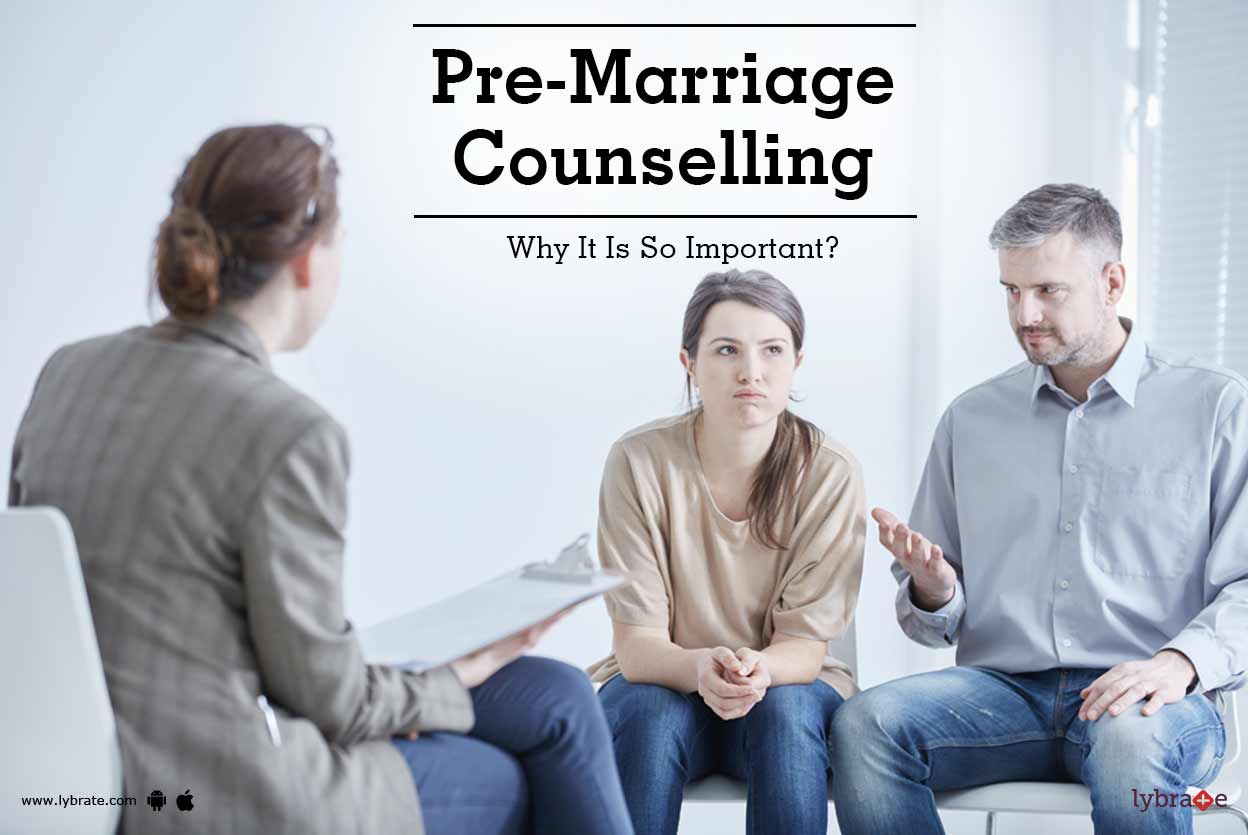 The role of the husband in the home became less and less important; periods of closeness of the spouses were infrequent and did not last long. As Mrs. D's frustration and anger grew, so did her tendency to take excessive responsibility for her family. As a result, she took on all the responsibility for the household instead of sharing it with them. This inevitably led to an increase in her feelings of loneliness. The husband and children took a passive position in relations with her. Although the feeling of frustration and dissatisfaction was most pronounced in the relationship with her husband, it was also reflected in the children, who periodically had serious difficulties.
The role of the husband in the home became less and less important; periods of closeness of the spouses were infrequent and did not last long. As Mrs. D's frustration and anger grew, so did her tendency to take excessive responsibility for her family. As a result, she took on all the responsibility for the household instead of sharing it with them. This inevitably led to an increase in her feelings of loneliness. The husband and children took a passive position in relations with her. Although the feeling of frustration and dissatisfaction was most pronounced in the relationship with her husband, it was also reflected in the children, who periodically had serious difficulties.
Fig. 5. Family Diagram D.
For the first six months of therapy, Mrs. D's desperation showed itself more in her posture and behavior than in her words.
The tension between her and her husband led him to raise his hand against her, and she, in turn, threatened him with a knife. Mr. D sometimes came to the sessions at my invitation, but when the tension in the marriage increased, he refused to attend, and his attitude towards therapy deteriorated. The intensity of this process was somewhat lessened when I persuaded Mrs. D. to switch her energy and attention to her parental family living in England. The correspondence that began, two trips, and then a discussion of these relations demonstrated, on the one hand, the limitations of her contact with her parental family, and, on the other hand, the possibility of establishing more active communication with her. This work included rebuilding a positive relationship with her father when he fell ill. Although they had sometimes been angry with each other in the past, Mrs. D now became more respectful of her father and his position in the family. His health improved greatly when she arrived in England, and after her departure began to gradually deteriorate. She was able to come to England again before his death and managed to say goodbye to him.
Mr. D sometimes came to the sessions at my invitation, but when the tension in the marriage increased, he refused to attend, and his attitude towards therapy deteriorated. The intensity of this process was somewhat lessened when I persuaded Mrs. D. to switch her energy and attention to her parental family living in England. The correspondence that began, two trips, and then a discussion of these relations demonstrated, on the one hand, the limitations of her contact with her parental family, and, on the other hand, the possibility of establishing more active communication with her. This work included rebuilding a positive relationship with her father when he fell ill. Although they had sometimes been angry with each other in the past, Mrs. D now became more respectful of her father and his position in the family. His health improved greatly when she arrived in England, and after her departure began to gradually deteriorate. She was able to come to England again before his death and managed to say goodbye to him. Looking at her father with different eyes, she became more strict in assessing the egocentric behavior of her mother and sister. Nevertheless, she became more active than before in communicating with them and with other members of the extended family.
Looking at her father with different eyes, she became more strict in assessing the egocentric behavior of her mother and sister. Nevertheless, she became more active than before in communicating with them and with other members of the extended family.
In addition to building relationships with the family of origin, the goal of the therapist's work was to reduce Mrs. D's super-responsibility in the nuclear family. At a certain point in her treatment, the pattern of responsibility in her family began to become clearer, but Ms. D. could not resist the inertia of this system. I wrote notes to her husband and children, inviting them to the next session to help Mrs. D, who, I assumed, did not know exactly how to change her behavior. After two joint sessions with children and several more sessions with a married couple, the rigid schema changed and the family's condition improved. The couple managed to come to an agreement about family leadership. When their children had problems, the family was able to coordinate their responses. Then Ms. D. ventured from a well-paid manual labor job to a clerical job that paid less but was more satisfying and gave her additional social experience. Ms. D's circle of contacts expanded significantly, and she began to enjoy interaction with her family and with the outside world. Despite occasional skirmishes with the children about expanding or limiting their responsibilities, all family members showed some signs of satisfaction and progressive change in their lives.
Then Ms. D. ventured from a well-paid manual labor job to a clerical job that paid less but was more satisfying and gave her additional social experience. Ms. D's circle of contacts expanded significantly, and she began to enjoy interaction with her family and with the outside world. Despite occasional skirmishes with the children about expanding or limiting their responsibilities, all family members showed some signs of satisfaction and progressive change in their lives.
General level of family functioning
In Bowen's theory, the concept of the general level of family functioning is derived from the concept of self differentiation. The level of family functioning includes the ability to think about and solve emotionally significant problems in emotionally intense conditions. This concept also characterizes the balance between the stability and vulnerability of the family. In addition, this concept includes variables that describe the style and quality of life. The level of functioning of the family significantly influences how the emotional disturbance proceeds, as well as the choice of therapeutic strategy. The higher the level of functioning of the family, the greater the opportunities for correcting the violations that arise. The level of functioning of a family is related to its socioeconomic status, but is not equivalent to it. The problem here lies more in the emotional resources of the family than in the physical or social conditions. In therapy, the level of family functioning serves as the basis for setting realistic goals and expectations.
The level of functioning of the family significantly influences how the emotional disturbance proceeds, as well as the choice of therapeutic strategy. The higher the level of functioning of the family, the greater the opportunities for correcting the violations that arise. The level of functioning of a family is related to its socioeconomic status, but is not equivalent to it. The problem here lies more in the emotional resources of the family than in the physical or social conditions. In therapy, the level of family functioning serves as the basis for setting realistic goals and expectations.
The cases below show the treatment of both high and low functioning families. The level of functioning of the family determines which goals are achievable and which are not, as well as how fast and deep the treatment process can be. In some cases, it may appear that one family member is performing at a noticeably higher level than another, or that a person may be performing substantially better in one area of life than another. It is optimal when treatment covers all areas of the functioning of the family and its constituent members. In this case, one-sided underestimation or overestimation of the level of functioning can be compensated. Assessing the overall level of functioning is difficult; it should be a continuous process, constantly receiving new data and information. However, only an assessment of this level allows you to choose the right direction and pace of treatment.
It is optimal when treatment covers all areas of the functioning of the family and its constituent members. In this case, one-sided underestimation or overestimation of the level of functioning can be compensated. Assessing the overall level of functioning is difficult; it should be a continuous process, constantly receiving new data and information. However, only an assessment of this level allows you to choose the right direction and pace of treatment.
Case 6
Mr and Mrs E came to me about their thirteen-year-old son's poor school performance. Because of this, the couple fought, trying to decide whether he should go to a private school. Their family chart is shown in Figure 6.
Mr. E. was a successful professional and had high hopes for his son. When he analyzed his expectations and gave his son more freedom, the tension decreased and the teenager began to behave better. After that, Ms. E. sought help for her depression.
She sensed a turning point in her life. Previously, Mrs. E. took care of the children and helped her husband in his work, but now she realized that she needed to separate from them and find new activities for herself. Beginning in her forties, her mother began to develop symptoms of dementia; Ms. E. has now reached the same age. She realized that she had an underlying fear that the same future awaited her. The therapy aimed at getting Mrs. E to visit her mother herself (which she had avoided for years) and for her to initiate several meetings with her father, during which she politely declined his requests for special favors. This changed the type of interaction that her father had all his life with his family.
Previously, Mrs. E. took care of the children and helped her husband in his work, but now she realized that she needed to separate from them and find new activities for herself. Beginning in her forties, her mother began to develop symptoms of dementia; Ms. E. has now reached the same age. She realized that she had an underlying fear that the same future awaited her. The therapy aimed at getting Mrs. E to visit her mother herself (which she had avoided for years) and for her to initiate several meetings with her father, during which she politely declined his requests for special favors. This changed the type of interaction that her father had all his life with his family.
Fig. 6. Diagram of family E.
Therapeutic sessions with this family were held for three years, but there were relatively few of them. Ms. E achieved greater self-determination in both her parental and nuclear family, and began to try her hand at professional work. She no longer complained of depression and did not look depressed. Her sense of her own potential increased, and her level of functioning became comparable to the level of functioning of her husband and successful members of the parental family.
Her sense of her own potential increased, and her level of functioning became comparable to the level of functioning of her husband and successful members of the parental family.
Case 7
Ms. J. has been treated for depression for several years with drugs and therapy sessions. When she started dating me, her youngest son, who was just over 20 years old, experienced a sharp exacerbation of functional symptoms, and conflicts with her husband began to take on an increasingly sharp character. The family diagram is shown in Figure 7.
The son's symptoms were alleviated by working primarily with his parents and not with himself. Having left the zone of anxiety and the main parental interests, he began to function more successfully. The conflict between the couple began to slowly fade away after I stopped trying to involve Mr. J in therapy and began to work only with Mrs. fueled the conflict. I suggested to Ms. J. to focus on her opportunities for self-development, on her relationship with her parental family, and eventually on her relationship with her children.
Fig. 7. Family Chart of J.
Ms. J. came from a family that was not very wealthy and had little ambition. Her mother took on more responsibility than her father for the family's emotional well-being. As the eldest child, Ms. J. inherited from her mother a heightened sense of responsibility and an associated sense of resentment. She used our discussions to determine the limits of her sense of responsibility for others. Take, for example, her relationship with her husband. When he did not invite her anywhere for some time, she began to pay less attention to household chores and looked for an opportunity to go somewhere herself with friends or children. When conflicts began between her sons and their wives, she tried to take a relatively neutral position, maintaining relations with everyone. Keeping in touch with most of her extended family members, she didn't mind that they didn't help each other much. She worked part-time to have an increase in her husband's meager earnings, but tried not to think about the need for it. She took - and showed it - pleasure in the gifts of her adult children, who seemed to appreciate her sincerely and highly.
She took - and showed it - pleasure in the gifts of her adult children, who seemed to appreciate her sincerely and highly.
At times Ms. J. still felt depressed and weak. The treatment did not change her behavior drastically, but as a result of family systems therapy, she became less worried about her dissatisfaction; her eyes seemed to open and there was a feeling of the fullness of being. She continued to take her medication and visited me from time to time. I believe that progress in Ms. J's condition was due to the fact that the goals available to her and her family were identified, as well as ways to move towards these goals.
This text is an introductory fragment.
6. Factor analysis. Ch. Spearman's two-factor theory of abilities. Multifactorial Theory of Ability by T. L. Killy and L.
 Thurston
Thurston 6. Factor analysis. Ch. Spearman's two-factor theory of abilities. Multifactor theory of abilities by T. L. Killy and L. Thurston Test batteries (sets) were created for the selection of applicants to medical, legal, engineering and other educational institutions. Basis for
Depression in disguise - a game of functional systems
Depression in disguise - a game of functional systems Finally, the biggest problem is the so-called hidden depression. Painful conditions defined as "hidden depressions" ("manipulated", "masked", "somatized", "vegetative" depressions
24. Concept of motivation. Theories of motivation. McClelland's theory of the need for achievement. Hierarchy of Needs Theory A. Maslow
24. The concept of motivation. Theories of motivation. McClelland's theory of the need for achievement. A. Maslow's hierarchy of needs theory Motivation is a set of human needs that can stimulate him as a member of the work team to achieve certain
A. Maslow's hierarchy of needs theory Motivation is a set of human needs that can stimulate him as a member of the work team to achieve certain
Energy theory or cognitive theory?
Energy theory or cognitive theory? In Freud's formulation, the primary process refers us both to what is responsible for the distortion of logical, rational thinking in search of satisfaction, and to the form of mental processes. Sure like
Work with a couple in the framework of Murray Bowen's theory of family systems I. Yu. Khamitova
Work with a couple in the framework of Murray Bowen's theory of family systems I. Yu. Khamitova Introduction Prior to the widespread penetration of Murray Bowen's ideas into psychotherapy, psychotherapeutic thinking was based mainly on psychoanalytic theory, which considers the uniqueness of
Bowen Family Systems Theory and Factors Influencing Successful Functioning in a Married Couple
Bowen's family systems theory and factors influencing successful functioning in a married couple The theory was created between 1963 and 1967. and included six concepts: 1. The concept of differentiation I; 2. The concept of triangulation;3. Concept about emotional processes
and included six concepts: 1. The concept of differentiation I; 2. The concept of triangulation;3. Concept about emotional processes
A Family Systems Perspective on Social Regression Murray Bowen
A look at social regression from the perspective of family systems theory Murray Bowen This article is the result of a long systematic work comparing emotional processes in the family with emotional processes in society. I first turned to social topics at 1940s,
Family Systems Theory
Family systems theory The evolution of my own theoretical views began about ten years before I began to study the family. There were many unanswered questions about commonly accepted explanations for emotional illness. Search Efforts
Treating Depression with Bowen Family Systems Theory Bennett Tittler
Treating Depression with Bowen Family Systems Theory Bennet Tittler Depression is one of the most common and severe emotional disorders that people experience.



